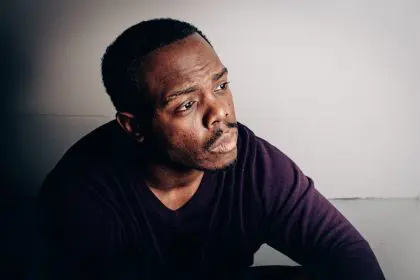Rejection is never easy to handle, especially in the realm of dating. While everyone experiences setbacks in their romantic pursuits, rejection often carries a uniquely heavy weight for men, striking at the core of their identity and self-esteem. It’s not just about the missed connection—it’s about the emotional toll and societal expectations that amplify the impact.
The burden of initiation
From a young age, men are taught to be the initiators in dating. This cultural expectation places immense pressure on them to approach, pursue, and make the first move. When rejection occurs, it can feel like a direct critique of their ability to fulfill this fundamental societal role.
The deeply ingrained idea that “real men” must succeed in romantic pursuits creates a scenario where rejection isn’t just a setback—it’s perceived as a failure to meet essential expectations. This pressure often leads to profound feelings of inadequacy and self-doubt.
Public perception and judgment
Rejection becomes even more challenging when there’s an audience involved. Whether witnessed by friends or potentially becoming fodder for gossip, men often worry about how others will perceive their romantic failures. This fear of judgment transforms a private disappointment into a public statement that can linger and impact future confidence.
The weight of public scrutiny adds another layer to the rejection experience, making it harder to maintain self-assurance in future romantic endeavors. This visibility often compounds the emotional impact, making each rejection feel more significant than it might otherwise.
The vulnerability challenge
For many men, expressing emotions or putting themselves in vulnerable positions presents a significant challenge. Asking someone out or expressing romantic interest requires stepping outside their comfort zone. When rejection follows these moments of openness, it can feel like punishment for daring to show authentic feelings.
This dynamic reinforces harmful stereotypes about male emotional expression, creating a cycle where men become increasingly reluctant to take emotional risks. The fear of vulnerability often leads to protective behaviors that can limit future romantic opportunities.
Self-worth and identity
Rejection often gets internalized as a reflection of personal flaws rather than a simple mismatch of compatibility. Men may begin questioning their attractiveness, personality, or overall desirability, linking rejection directly to their sense of self-worth. This self-critical perspective leads to excessive analysis of interactions, searching for mistakes or perceived inadequacies.
The competitive mindset many men develop around dating amplifies these feelings. Society often conditions men to view relationships as achievements, making rejection feel like a loss in a larger game of life. This framework leaves little room for understanding that rejection often reflects compatibility issues rather than personal shortcomings.
Cultural masculinity pressures
Traditional views of masculinity suggest men should maintain strength, confidence, and control at all times. Rejection disrupts this narrative, creating a disconnect between societal expectations and lived experience. When men face rejection, they might feel they’ve failed to embody cultural ideals of masculinity.
This internal conflict often leads to feelings of shame or embarrassment, compounding the emotional impact. The pressure to maintain a facade of unwavering confidence while processing rejection can create significant internal stress.
Limited emotional support
While women often have social networks where they can openly discuss feelings and experiences, men frequently lack similar emotional support systems. The stigma around men seeking help or expressing emotions means many process rejection in isolation. This solitary experience can intensify feelings of inadequacy and make recovery more challenging.
Without supportive outlets, the impact of rejection can fester, leading to unproductive coping mechanisms or unresolved emotional buildup. The lack of healthy processing options often extends the recovery period and deepens the emotional impact.
Moving forward
Understanding these underlying factors helps illuminate why dating rejection affects men so profoundly. Recognizing these challenges represents the first step toward fostering healthier approaches to handling romantic setbacks. By challenging harmful stereotypes and encouraging open conversations about vulnerability and emotions, we can help men navigate rejection with greater resilience.
Rejection, while painful, doesn’t define personal worth. Instead, it can serve as a catalyst for growth, self-awareness, and eventually finding more compatible connections. Through empathy, understanding, and improved support systems, men can learn to process rejection more effectively and maintain their sense of self-worth through dating challenges.
This story was created using AI technology.







